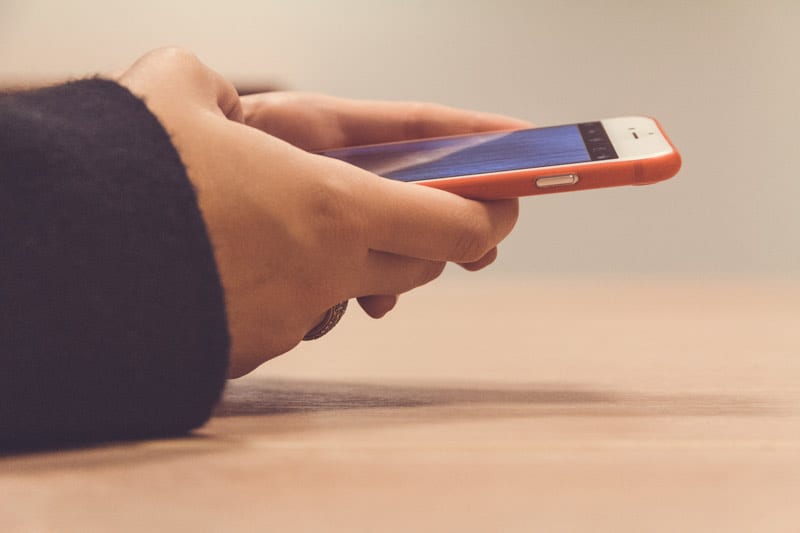The 2020 pandemic meant that many of those seeking mental health help were unable to meet their therapists and counselors face-to-face. The need for access to online mental health treatment was needed more than ever before. Online counseling was already in use, but when popularity spiked, demand increased.
Internet searches for ‘counseling online’ have increased by 124% since the outbreak. Even though interest in online counseling has just increased significantly, previous studies prove that it is just as good, if not better than face-to-face therapy.
Is Online Counseling Effective?
According to a study carried out by the University of Zurich, online counseling sessions can be successfully delivered via instant messaging, email, and video chats.
As part of the study, six therapists treated sixty-two patients who experienced moderate depression. Half were treated face-to-face, and the other half were treated online. Both groups received eight sessions of therapy to ensure the contact was equal. Professor Andreas Maercker discovered that fifty-three percent of those treated online were no longer diagnosed with depression, compared to fifty percent of those who received face-to-face therapy. At the end of the study, fifty-seven percent of patients who completed the online treatment were free of depression. Whereas only forty-two percent of those who had traditional, face-to-face therapy were free of depression.
One reason online counseling was more successful is the paper trail that it generates. Clients could re-read their interactions with the therapist, and this kept it fresh in their minds. The written record was a resource that could be used between sessions, and this played a major role in its success.
What Types of Online Counseling are There?
There are several options when it comes to online counseling. Online counseling refers to any form of counseling that is conducted over the internet. Online counseling or therapy can be done by telephone, email, online chats, and video chats.
Telephone Counseling
Telephone counseling works the same way a regular call does. You arrange the phone counseling session with your therapist or counselor, and the session can be held over a regular phone call.
Email Counseling
Email counseling enables you to work with a qualified counselor or therapist without having to voice your feelings aloud. This method involves writing your concerns into an email, and the counselor responding with a well thought out reply.
Earlier in the article, we touched on a study of why online counseling was so successful. Not only can writing down your struggles be an effective way of processing negative emotions, but you can also look back at the correspondence wherever you need to.
Usually, the emails can be written by you however you like. Some people like to prepare the email as the thought occurs, whereas others like to sit down and do it in one session.
And, we cannot ignore the fact that some clients prefer not to have face-to-face communication—especially those who find it easier to be open about their struggles in writing.
Online Chat Counseling
Online chat counseling is held at a prearranged time using an instant messenger service. You and the counselor will receive instant ‘real-time’ messages.
This may sound similar to email counseling, but the major difference here is that online chat counseling provides instant replies and feedback, whereas email counseling may involve a waiting period between responses. The main appeal of online chat is, of course, its accessibility and convenience.
Video Chat Counseling
Video chat counseling has become an increasingly popular option and maybe even a favorite during lockdown. It’s a great option for those who can’t come in for face-to-face counseling sessions but rely on the connection that’s established by seeing each other. There are many programs and apps you can use to do video chat counseling. The only thing you need is a device with a camera and microphone.
Video chat sessions still feel very personal for those who prefer to communicate in this means. You can also do it from the comfort of your own home, which means that you could talk to a counselor from anywhere in the world. They will always be one on hand for help and guidance.
About the Author: Andrew Chan Poyiu works at and owns Delight Counselling. He’s qualified in Person-Centered & Experiential Counselling & Psychotherapy and is also a registered accredited member of the UK BACP.
Photo by Dries De Schepper on Unsplash
href=”https://www.rtor.org” target=”_blank” rel=”noopener noreferrer”>www.rtor.org or its sponsor, Laurel House, Inc. The author and www.rtor.org have no affiliations with any products or services mentioned in the article or linked to therein. Guest Authors may have affiliations to products mentioned or linked to in their author bios only.
Recommended for You
- Veterans and Addiction Recovery: How Families Can Support Their Service Member’s Healing Journey - July 14, 2025
- Trauma-Aware Yoga: A Gentle Path to Healing and Recovery - July 10, 2025
- Why Eating Disorders in Men Are Often Missed - July 3, 2025





